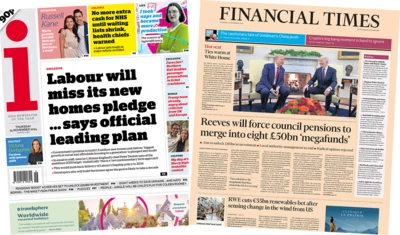We've updated our Privacy and Cookies Policy
We've made some important changes to our Privacy and Cookies Policy and we want you to know what this means for you and your data.
Women asked if bladder drug should be available to buy
Image source, Getty Images
- Author, Michelle Roberts
- Role, Digital health editor
A pill to help treat an overactive bladder - which affects millions of women - could soon be available to buy in the UK without prescription.
The Medicines and Healthcare products Regulatory Agency (MHRA) wants women and doctors to submit their views.
Aquiette tablets treat the "urge to pee" condition which can cause frequent toilet trips and distressing accidents.
Symptoms include having to urinate at least eight times a day and more than once during the night.
It would be the first time a medicine for the treatment of overactive bladder would be available without prescription.
Dr Laura Squire, from the MHRA, said: "For many women, an overactive bladder can make day-to-day living extremely challenging.
"It can impact on relationships, on work, on social life, and it can lead to anxiety and depression.
"Fortunately there are treatments around, and from today you will have a chance to have your say on whether one of those treatments, Aquiette, can be available for the first time without a prescription."
Minister for Women's Health Maria Caulfield said: "When it comes to sensitive issues such as bladder control, speaking to a GP may act as a barrier for some women to seek help.
"Reclassification of Aquiette would enable women to access vital medication without needing a prescription."
The Commission on Human Medicines has been consulted and has advised that it is safe for Aquiette to be made available over-the-counter at UK pharmacies.
The consultation will run for three weeks, closing on 6 May, 2022.
There are several types of incontinence, but this medication is designed to treat an overactive bladder condition only.
Types of urinary incontinence include:
- stress incontinence - when urine leaks out at times when your bladder is under pressure, for example, when you cough or laugh
- urge incontinence - when urine leaks as you feel a sudden, intense urge to pee, or soon afterwards
- overflow incontinence (chronic urinary retention) - when you're unable to fully empty your bladder, which causes frequent leaking
- total incontinence - when your bladder cannot store any urine at all, which causes you to pass urine constantly or have frequent leaking
Source:
Top Stories
More to explore
Most read
Content is not available








